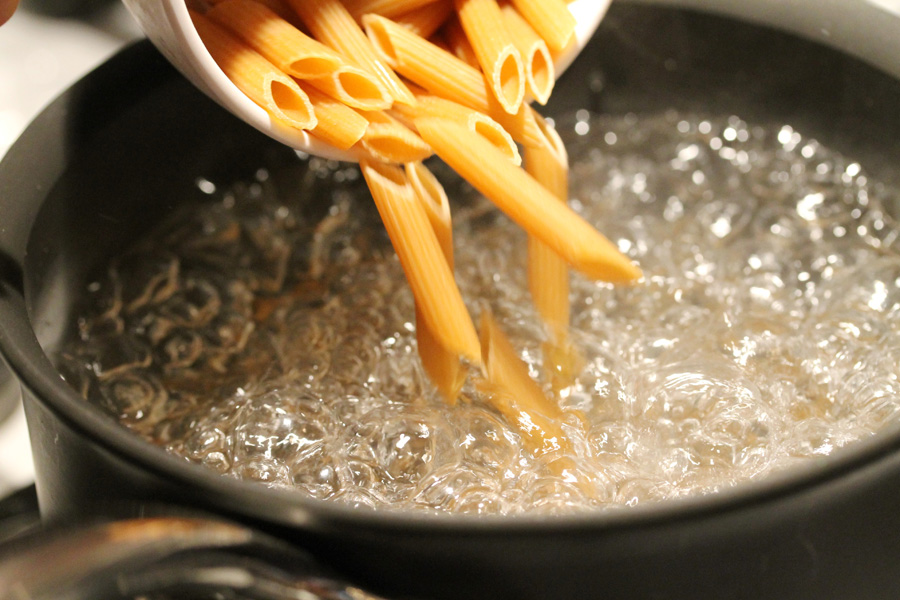There are more efficient ways to cook pasta besides dropping it into a big pot of boiling, salted water. For example, next time pasta’s on the menu, try turning off the burner once you drop the pasta and letting it cook in the already-hot water.
The folks over at Cook’s Illustrated tried this method out with several different types of pasta including spaghetti, farfalle, shells, and ziti, and it worked like a charm. They explain why:
What Is Low-Temp Pasta?
Most instructions for cooking dried pasta are invariably the same: Drop the noodles into a pot of boiling water, bring it back to a boil, and keep it bubbling vigorously until the pasta is done. We already broke with this conventional wisdom by showing that you can cook pasta in a lot less water than is typically called for, as long as you don’t mind stirring it frequently.
Now we’ve learned that you don’t need to hold your pasta water at a rolling boil either. In fact, you don’t even need to keep the pot on the heat. The pasta will cook just fine if you take the pot off the burner as soon as you add the pasta, cover it immediately, stir once or twice during the first minute, cover again, and leave it to sit for the recommended cooking time. We tested this method with spaghetti, shells, farfalle, and ziti, using the full 4 quarts of water recommended per pound, and we found that the texture was identical to that of pasta we boiled the conventional way.
Here’s why the approach works: Starches absorb water at approximately 180 degrees. As long as the water is at a rolling boil (212 degrees) when you add the pasta and your kitchen is at normal room temperature, the water will remain well above 180 degrees off the heat for longer than the typical 8 to 10 minutes it takes for the pasta to cook through. In our tests, the water temperature had only cooled to about 195 degrees by the time the pasta was al dente. (In a cooler-than-normal kitchen, the pasta might take a minute or two longer to reach the proper texture, and the water temperature might drop a little more.)
Does this mean we’re going to stop boiling our pasta? Maybe not. But it’s nice to know we have the option.

Sorry, the comment form is closed at this time.